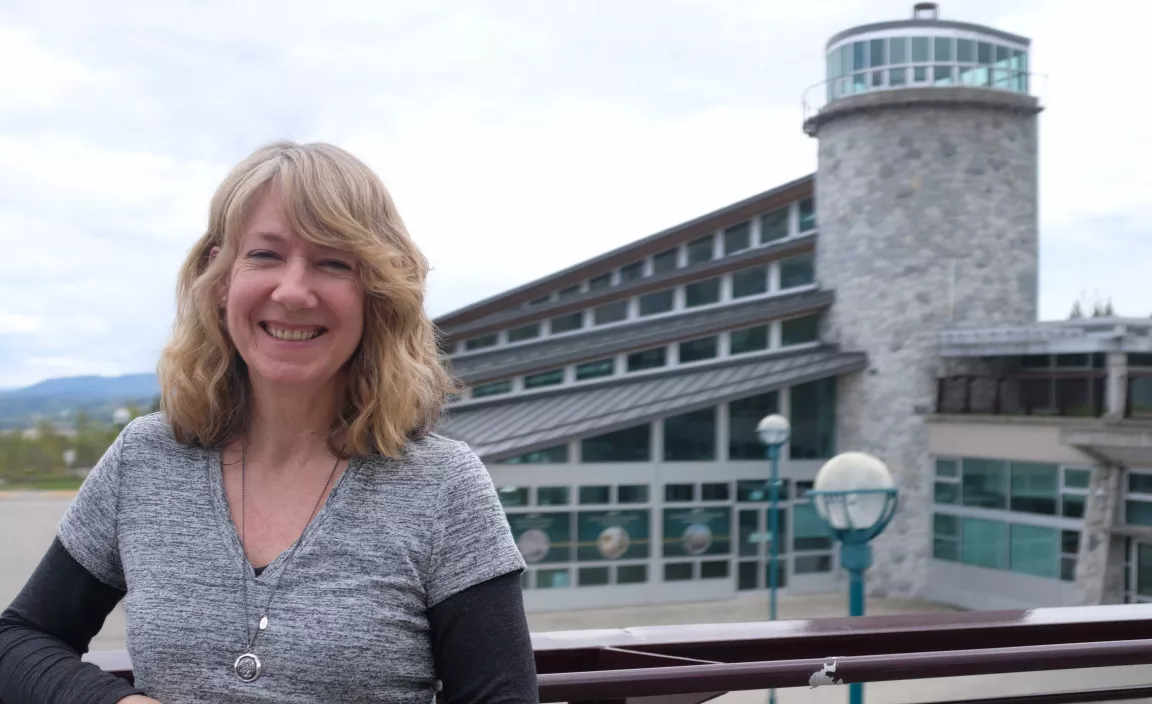Banting Fellow to Study Early Intervention Therapy with Indigenous Communities

Early intervention therapy for infants and young children who have developmental delays or disabilities can be key to optimizing their health, well-being and participation in meaningful everyday activities.
However, for a variety of reasons Indigenous families may not feel safe in accessing early intervention therapy. Families may also lack access to timely and culturally safe programs or services.
UNBC postdoctoral researcher Dr. Alison Gerlach is seeking to learn how early intervention therapy - that is occupational therapy, speech-language pathology, and physiotherapy - can be provided in ways that are responsive, culturally safe, and effective with Indigenous communities and families in Northern B.C.
“There is a lot of research showing the earlier the intervention, the more benefits it can have for children who have developmental delays or disabilities including autism, cerebral palsy, and fetal alcohol syndrome. But a lot of Indigenous children are not getting identified and are not getting services until they are in Kindergarten or Grade 1,” Gerlach says. “By that point families and children have missed that opportunity for the funding, supports, and early intervention therapy that is available for younger children.”
She recently received a Banting Fellowship from the Canadian Institutes of Health Research (CIHR) for her proposed study ‘Rethinking Early Intervention Therapy with Indigenous Communities and Families in Northern British Columbia: A Critical Inquiry’.
The Banting Fellowship funding started June 1, 2017 and will provide $70,000 per year for up to two years of research. The program, administered by the Government of Canada, aims to attract top-tier postdoctoral talent, develop leadership potential and position fellows for success as research leaders of tomorrow.
Each year, the three major federal granting agencies (CIHR, the Natural Sciences and Engineering Research Council of Canada and the Social Sciences and Humanities Research Council of Canada) award 70 Banting Fellowships to postdoctoral researchers working in Canada. Gerlach is the second UNBC researcher to receive funding through the program.
Gerlach is supervised by UNBC First Nations Studies and Education Professor Dr. Margo Greenwood, who is also the Academic Lead for the National Collaborating Centre for Aboriginal Health (NCCAH) located at UNBC. Gerlach, who completed her PhD at the University of British Columbia in 2015 and began working with the NCCAH in 2016, said being able to work with Dr. Greenwood and the NCCAH team helped secure the funding for her research.
“The Banting Fellowship looks at the synergy between the fellow, the supervisor and the research environment,” Dr. Gerlach says. “The NCCAH is an international leader in informing Indigenous public health issues. There is also a clear, strategic priority at UNBC to do research with Indigenous communities that benefits Indigenous communities.”
Northern B.C. is a natural fit for Gerlach’s research because of the large Indigenous population as well as the unique challenges that come with delivering programs in rural and Northern communities.
“There’s a lot of really exciting work underway in the North in terms of innovative, community-driven approaches to improving Indigenous people’s health,” she says. “I think the North is leading the way in that area and this is a great opportunity to contribute to this work.”